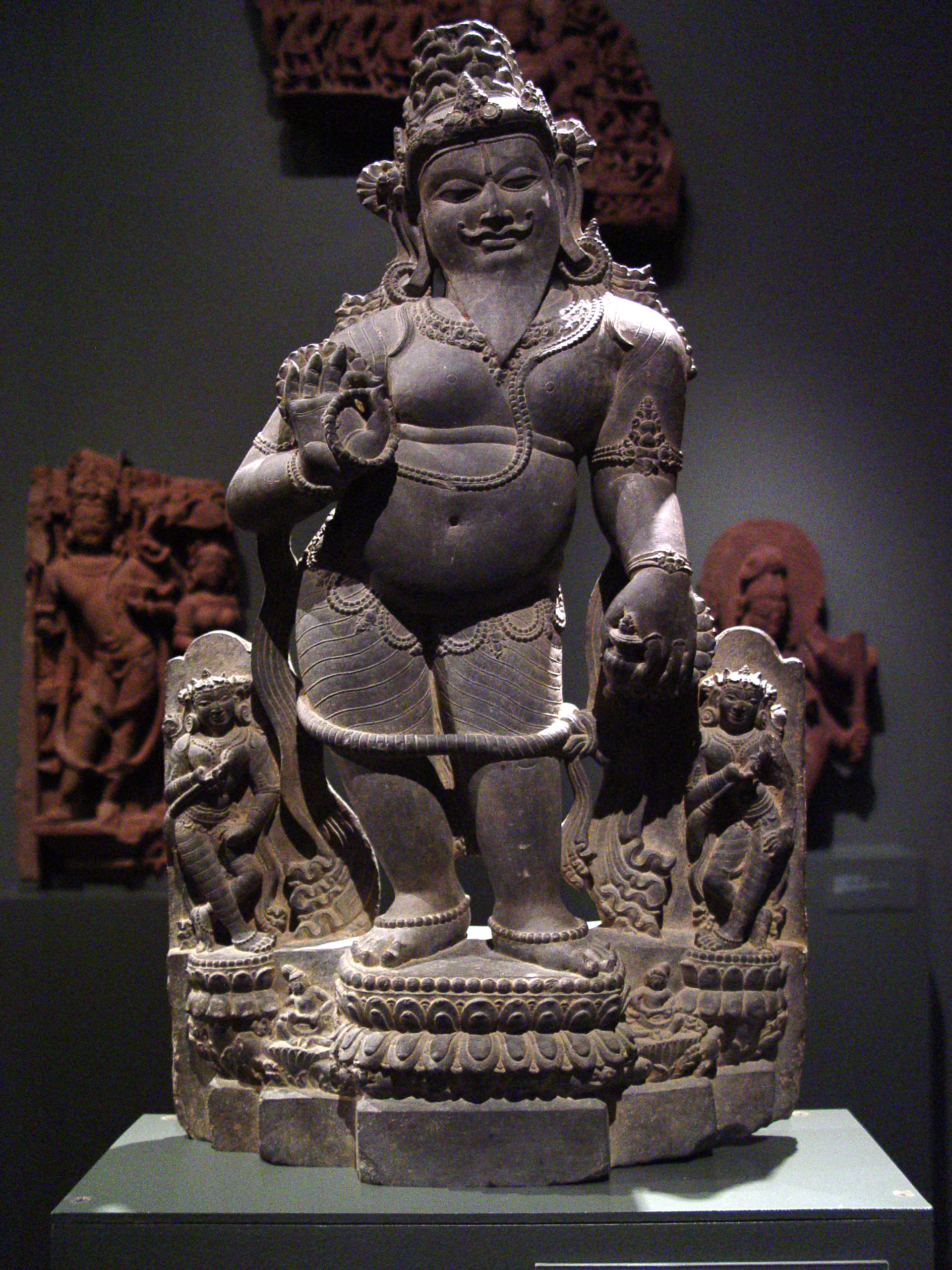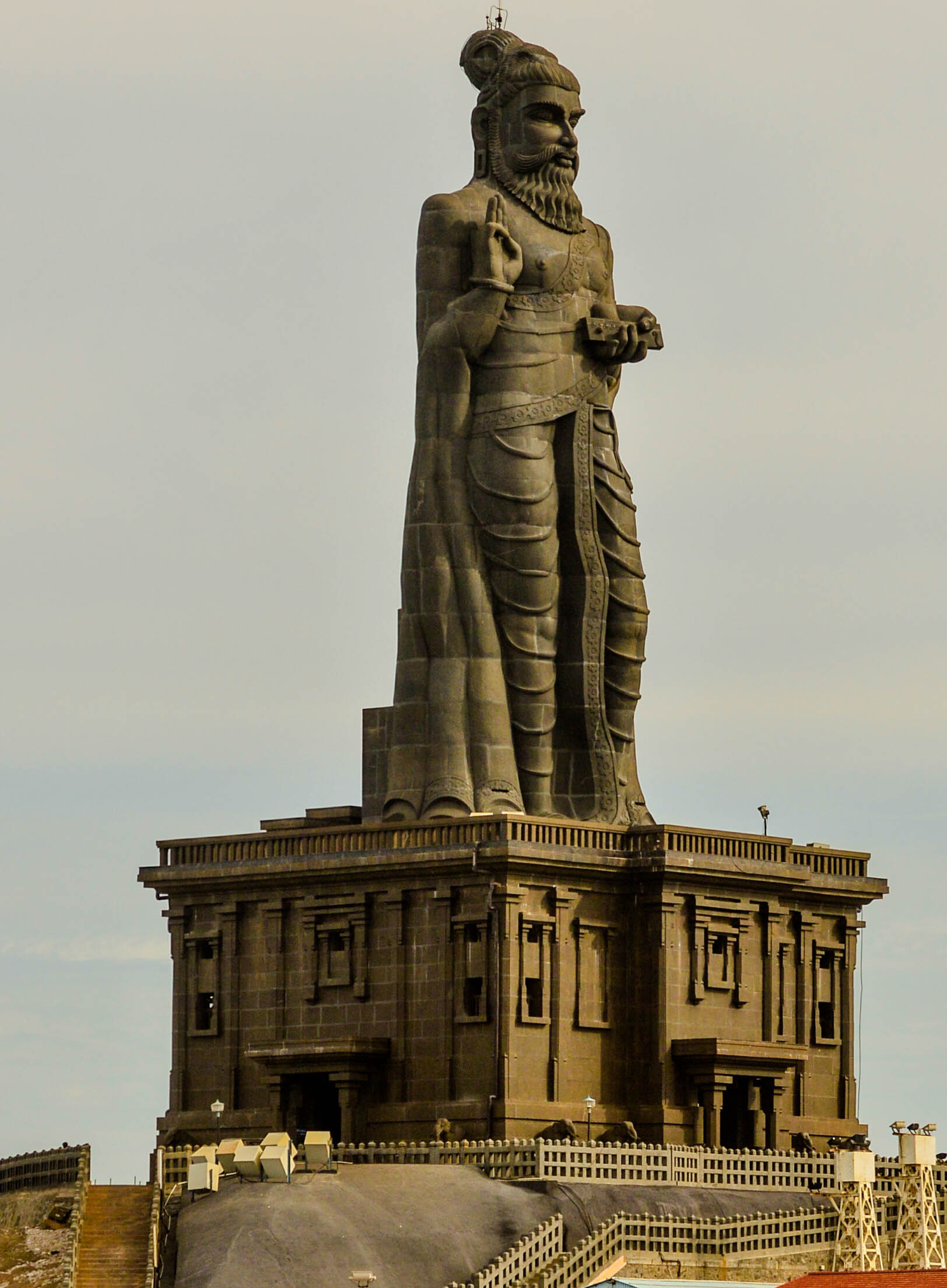|
Nagan Devanar
Nagan Devanar, known in full as Madurai Tamil Koothan Nagan Devanar (Tamil: மதுரைத் தமிழ்க் கூத்தன் நாகன்தேவனார்), was a poet of the Sangam period, to whom a sole verse of the Sangam literature has been attributed, in addition to verse 12 of the Tiruvalluva Maalai. Biography Nagan Devanar was born as "Devanar" and lived in Madurai. He was known for his expertise in the ancient Tamil theatre. Contribution to the Sangam literature Nagan Devanar has written a sole Sangam verse—verse 164 of the Agananuru—apart from verse 12 of the Tiruvalluva Maalai. Views on Valluvar and the Kural Nagan Devanar opines about Valluvar and the Kural text thus: See also * Sangam literature * List of Sangam poets * Tiruvalluva Maalai Tiruvalluva Malai () is an anthology of ancient Tamil paeans containing fifty-five verses each attributed to different poets praising the ancient work of the Kural and its author Tiruvalluva ... [...More Info...] [...Related Items...] OR: [Wikipedia] [Google] [Baidu] |
Tamil Language
Tamil (, , , also written as ''Tamizhil'' according to linguistic pronunciation) is a Dravidian language natively spoken by the Tamil people of South Asia. It is one of the longest-surviving classical languages in the world,. "Tamil is one of the two longest-surviving classical languages in India" (p. 7). attested since 300 BC, 300 BCE.: "...the most acceptable periodisation which has so far been suggested for the development of Tamil writing seems to me to be that of A Chidambaranatha Chettiar (1907–1967): 1. Sangam Literature – 200BC to AD 200; 2. Post Sangam literature – AD 200 – AD 600; 3. Early Medieval literature – AD 600 to AD 1200; 4. Later Medieval literature – AD 1200 to AD 1800; 5. Pre-Modern literature – AD 1800 to 1900" at p. 610 Tamil was the lingua franca for early maritime traders in South India, with Tamil inscriptions found outside of the Indian subcontinent, such as Indonesia, Thailand, and Egypt. The language has a well-documented history wit ... [...More Info...] [...Related Items...] OR: [Wikipedia] [Google] [Baidu] |
Sangam Period
The Sangam literature ( Tamil: சங்க இலக்கியம், ''caṅka ilakkiyam''), historically known as 'the poetry of the noble ones' ( Tamil: சான்றோர் செய்யுள், ''Cāṉṟōr ceyyuḷ''), connotes the early classical Tamil literature and is the earliest known literature of South India. The Tamil tradition links it to legendary literary gatherings around Madurai in the ancient Pandya kingdom. It is generally accepted by most scholars that the historical Sangam literature era, also known as the Sangam period, spanned from 100 BCE to 250 CE, on the basis of linguistic, epigraphic, archaeological, numismatic and historical data; though some scholars give a broader range of 300 BCE to 300 CE. The Eighteen Greater Texts (Patiṉeṇmēlkaṇakku), along with the Tamil grammar work Tolkappiyam, are collectively considered as Sangam literature. These texts are classified into the Ettuttokai (Eight Anthologies) and Pattupattu (T ... [...More Info...] [...Related Items...] OR: [Wikipedia] [Google] [Baidu] |
Sangam Literature
The Sangam literature (Tamil language, Tamil: சங்க இலக்கியம், ''caṅka ilakkiyam''), historically known as 'the poetry of the noble ones' (Tamil language, Tamil: சான்றோர் செய்யுள், ''Cāṉṟōr ceyyuḷ''), connotes the early classical Tamil literature and is the earliest known literature of South India. The Tamil tradition links it to Legendary Tamil Sangams, legendary literary gatherings around Madurai in the ancient Pandya dynasty, Pandya kingdom. It is generally accepted by most scholars that the historical Sangam literature era, also known as the Sangam period, spanned from 100 BCE to 250 CE, on the basis of linguistic, epigraphic, archaeological, numismatic and historical data; though some scholars give a broader range of 300 BCE to 300 CE. The Eighteen Greater Texts (Patiṉeṇmēlkaṇakku), along with the Tamil grammar work Tolkāppiyam, Tolkappiyam, are collectively considered as Sangam literature. These tex ... [...More Info...] [...Related Items...] OR: [Wikipedia] [Google] [Baidu] |
Tiruvalluva Maalai
Tiruvalluva Malai () is an anthology of ancient Tamil paeans containing fifty-five verses each attributed to different poets praising the ancient work of the Kural and its author Tiruvalluvar. With the poets' time spanning across centuries starting from around 1st century CE, the collection is believed to have reached its present form by 10th century CE. With the historical details of the ancient philosopher and his work remaining obscure, much of the legend on the Kural and Tiruvalluvar as they are known today are chiefly from this work. The collection also reveals the name of the author of the Kural text as 'Tiruvalluvar' for the first time, as Tiruvalluvar himself composed the Kural text centuries earlier without indicating his name anywhere in his work. Reminiscing this, E. S. Ariel, a French scholar of the 19th century, famously said of the Tirukkural thus: ''Ce livre sans nom, par un autre sans nom'' ("The book without a name by an author without a name"). History and d ... [...More Info...] [...Related Items...] OR: [Wikipedia] [Google] [Baidu] |
Madurai
Madurai ( , , ), formerly known as Madura, is a major city in the States and union territories of India, Indian state of Tamil Nadu. It is the cultural capital of Tamil Nadu and the administrative headquarters of Madurai District, which is governed by the Madurai Municipal Corporation established on 1 November 1866. As of the 2011 Census of India, 2011 census, it is the List of cities in India by population, third largest metropolis in Tamil Nadu after Chennai and Coimbatore in terms of population and 27th largest List of million-plus urban agglomerations in India, urban agglomeration in India. Located on the banks of River Vaigai, Madurai has been a major settlement for two millennia and has a documented history of more than 2500 years. It is often referred to as "Thoongatha Nagaram", meaning "the city that never sleeps". Madurai is closely associated with the Tamil language. The third Tamil Sangam, a major congregation of Tamil scholars, is said to have been held in the ci ... [...More Info...] [...Related Items...] OR: [Wikipedia] [Google] [Baidu] |
Koothu
Koothu, or Therukoothu, is an ancient Tamil art form, where artists enacted scenes from epics and folklore with dance and music. It is a form of storytelling art that originated in the early Tamilakam, and served as an entertainment and a medium to educate the people about religion and history. Various forms exist such as Terukuttu and Kattaikkuttu. Description Koothu is an ancient Tamil art form, which is a form of drama, where artists enacted scenes from epics and folklore with dance and music. It involves play performance along with narration and singing. Sangam literature such as '' Silappatikaram'' provide detailed description of the art form. The stories are drawn from Hindu epics such as Ramayana and Mahabharata, mythology and folklore. Apart from entertainment, koothu also serves as a medium of education to the rural people about religion and history. Variations Koothu broadly consists of the art forms of Terukuttu and Kattaikkuttu. Terukkuttu refers to mobile ... [...More Info...] [...Related Items...] OR: [Wikipedia] [Google] [Baidu] |
Valluvar
Thiruvalluvar commonly known as Valluvar, was a Tamil poet and philosopher. He is best known as the author of the ''Tirukkuṟaḷ'', a collection of couplets on ethics, political and economic matters, and love. The text is considered an exceptional and widely cherished work of Tamil literature. Almost no authentic information is available about Valluvar, states Kamil Zvelebil – a scholar of Tamil literature. His life and likely background are variously inferred from his literary works by different biographers. There are unauthentic hagiographic and legendary accounts of Valluvar's life, and all major Indian religions, as well as Christian missionaries of the 19th century, have tried to claim him as secretly inspired (''crypto-'') or originally belonging to their tradition. Little is known with certainty about his family background, religious affiliation, or birthplace. He is believed to have lived at least in the town of Mylapore (a neighbourhood of the present-day Chennai ... [...More Info...] [...Related Items...] OR: [Wikipedia] [Google] [Baidu] |
Kural Text
The ''Tirukku·πüa·∏∑'' (), or shortly the ''Kural'' (), is a classic Tamil language text on commoner's morality consisting of 1,330 short couplets, or kurals, of seven words each. The text is divided into three books with aphoristic teachings on virtue ( ''aram''), wealth ( ''porul'') and love ( ''inbam''), respectively. It is widely acknowledged for its universality and secular nature. Its authorship is traditionally attributed to Valluvar, also known in full as Thiruvalluvar. The text has been dated variously from 300 BCE to 5th century CE. The traditional accounts describe it as the last work of the third Sangam, but linguistic analysis suggests a later date of 450 to 500 CE and that it was composed after the Sangam period. The Kural text is among the earliest systems of Indian epistemology and metaphysics. The work is traditionally praised with epithets and alternative titles, including "the Tamil Veda" and "the Divine Book." Written on the ideas of ''ahimsa'', it ... [...More Info...] [...Related Items...] OR: [Wikipedia] [Google] [Baidu] |
List Of Sangam Poets
Sangam refers to the assembly of the highly learned people of the ancient Tamilakam, Tamil land, with the primary aim of advancing the literature. There is no historical evidence to suggest that there were three Sangams. It is a medieval myth propagated by the medieval writers. Sangam is a latter appellation given to the congregation of poets that often took place in ancient Pandian country, until around 300 CE, with 449 poets contributing under the patronage of 49 Pandyan dynasty, Pandyan kings. List of Sangam poets Below is a list of poets of the Sangam literature, Sangam period: See also * Third Sangam * Sangam landscape References Further reading * External links Sangam Poets and Poems {{Tamil language, state=collapsed Sangam literature Tamil-language literature Ancient Tamil Nadu Indian literature Cultural history of Tamil Nadu ... [...More Info...] [...Related Items...] OR: [Wikipedia] [Google] [Baidu] |
Tamil Philosophy
Tamil may refer to: People, culture and language * Tamils, an ethno-linguistic group native to India, Sri Lanka, and some other parts of Asia **Sri Lankan Tamils, Tamil people native to Sri Lanka ** Myanmar or Burmese Tamils, Tamil people of Indian origin settled in Burma/Myanmar primarily during the British period ** Tamil Malaysians, Tamil people of Indian origin settled to Malaysia ** Singapore Tamils, Tamil people of Indian origin settled in Singapore ** Tamil diaspora, descendants of Tamil immigrants living outside of India and Sri Lanka * Tamil language, the native language of the Tamils * Tamiloid languages, Dravidian languages related to Tamil, spoken in India * Tamil script, the writing system of the Tamil language ** Tamil (Unicode block), a block of Tamil characters in Unicode * Tamil dialects, referencing geographical variations in speech * Tamil culture, culture of the Tamil people * Tamil cuisine, cuisine of the Tamil people * Tamil cinema (other) **Tamil ... [...More Info...] [...Related Items...] OR: [Wikipedia] [Google] [Baidu] |






